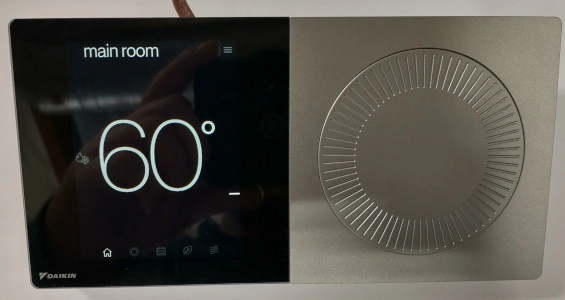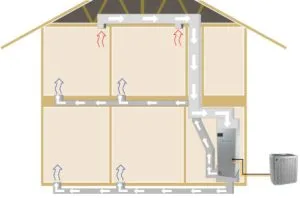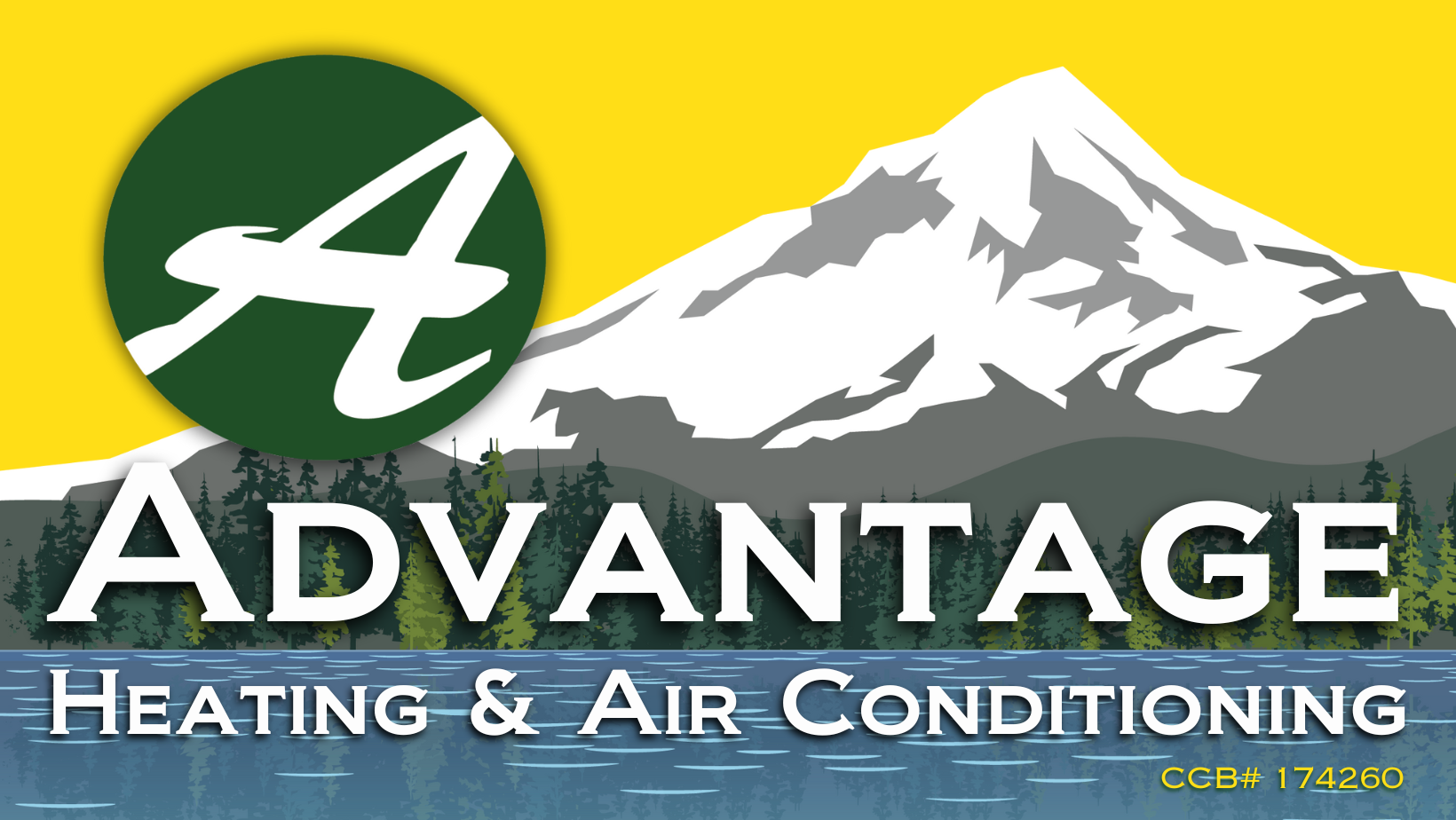How Much Does HVAC Cost?
Your Heating, Ventilation, and Air Conditioning system, or HVAC, does what the name implies. This is a system of machines and structures that make sure that the interior of your home stays comfortable and, in extreme weather, safe.
The HVAC system provides heating and airflow with the furnace and cooling with the air conditioning unit (AC). The ductwork provides ventilation and allows air to circulate through the other systems and the filter. If you want more information on just the furnace, air conditioner, or air filters, you can check out our blog posts on each of those components. So, how much does HVAC cost?
The Cost in Salem, Oregon
In Oregon, just for the HVAC system with no ductwork, the cost could range between $8000 and $25,000. With ductwork included, that price can go up another $5000-$10,000. Of course, this isn’t just affected by the cost of your new HVAC system’s components.
You also need to consider who is doing the installation. Think about whether they are taking good care of your HVAC system, and by extension, your home. Before we get into all that, though, let’s take a quick look at a more recent development in HVAC systems that could affect your cost.
What Is Smart HVAC
Much like your phone, watch, and fridge, there is now an option to get a Smart HVAC system. If you like to have interconnected smart devices in your home, this kind of system has many of the same selling points. More sophisticated sensors, more efficient output and load management, and some systems also have the option of managing your entire HVAC system with an app.

A smart system can get a more precise reading of the interior temperature of your home. By using multiple points around your home, it can determine what exact rooms need heating or cooling. The system itself runs more efficiently than a traditional HVAC system. Instead of turning to 100% for a few minutes because a room fell 1 degree below the setting, a smart system can run at a lower intensity and only in the rooms connected to that one sensor.
Smart HVAC In Use
We could also look at this in the context of the most extreme weather you might face in your home. You don’t face this weather every day of the year, that’s why it’s extreme. If you live up a mountain near the Columbia River, it could drop to temperatures in the single digits in cold winter. If you live in Government Camp, you know what I’m talking about. This is pretty far off from their average temperatures in Summer which range from the high 50s to low 70s.
You need a system that can warm up your home from 5 degrees, otherwise, winters are going to be pretty unpleasant. That same system also needs to maintain temperature when it is 65 degrees out. A basic system that is big enough and powerful enough to heat from the lowest temp is going to feel a lot like overkill in the warmer months. That’s because it runs at 100% all the time. This can cause some drastic temperature fluctuations, resulting in inconsistent temperatures across your home.
The Difference Between Conventional And Smart HVAC
A basic system has two modes, off or 100% on. If you think about this like a faucet, it would be like you could not control the amount of water that was coming out. The same blast of water you’d get to fill a gallon bucket is going to be the same amount of water you’ll get when you only need to fill a 6 0z cup. It would be way too much if you just need a drip to wet a washcloth.
A Smart HVAC system is like a faucet that works as you would expect it to. Instead of a full blast all the time, it can “slow drip” heating if it only needs to raise one room by 1 degree. This means more even and consistent temperatures in your home. Because it does not always use 100% energy that means it’s also not using as much energy as a basic system. Not only could this lower energy usage and prevent wear on the components, but it will also mitigate arguments over who gets to control the thermostat.
Does Smart HVAC Cost More?
Of course, the machinery and components in a smart system are much more involved than a traditional HVAC system. More wiring will need to be involved to get sensors in more rooms. The furnace, air conditioning, and vents will all need to be optimal fits for each other and installed correctly. Otherwise, the system may end up losing efficiency or incurring damage from the installation process or airflow issues. This means that it will require excellent craftsmanship to achieve the desired performance.
It is also much more difficult to provide a rough quote for a smart system as every home will have different needs. To get a better idea of how much a Smart HVAC system could cost you, you would need to contact a contractor and get a personalized quote after a load calculation and discussing your desired at-home climate.
Do Efficient HVAC Systems Cost More?
Short answer – yes. Long answer – it depends on your time frame. There are a handful of reasons for this and quality of parts is important, but it is not the only factor that affects the pricing.
A lot of the major manufacturers for the components involved in an HVAC system will perform comparably, but there can still be a price difference based on who you hire to install your HVAC system.

The Difference In HVAC Installers
The type of company you hire will play a big part in just how efficient your HVAC system is.
Function-Based
A Function-Based company may reduce the price of installing the HVAC system, but the longevity and efficiency of the HVAC system may suffer for it. A Function-Based Company gets the parts, installs them, and turns them on. They will not design the system to your specific needs and the layout of your home.
This can cause higher energy usage and increased wear and tear on your system. An example of this is all too present in the United States. Most Air Conditioners use 20%-30% more energy than what should be sufficient. Down the line, this will translate to higher energy bills and more frequent repairs.
Performance-Based
A Performance-Based Company will cost more upfront. Most quality contractors and companies are in the upper half of the price range we stated earlier, $8000 to $25,000. The reason for that price discrepancy, when working with comparable parts, is the time they spend working for you and the quality of time working for you.
A high-quality contractor should conduct a load calculation to see the exact size of the Furnace and Air Conditioning Unit you need. They will look at how your vents are arranged and if they provide enough airflow or if they need to be added to, to help the system breathe. Your contractor may even ask about your health to determine if you need a stronger filter to mitigate asthma and allergies while inside the home.
A Performance-Based Company has all these considerations to make sure your HVAC system is running efficiently. That means less energy usage and less stress for the components. A Performance-Based company may also offer warranties or service contracts to maintain your HVAC system for a longer period. With less energy usage, less frequent repairs, and more frequent maintenance, an efficient HVAC system could pay for itself in the long term.
What To Consider When Buying A New HVAC System?
There are a couple of things to take away from this article and think about when buying your new HVAC system.
- Does the ductwork need to be redone or included?
- Do you want a Smart HVAC or a traditional system?
- Do you care about the cost in the short or the long term?
- Does your family have health problems that need to be considered?
- Is the company installing your HVAC going to take care of you as time goes on?
Each one of these factors could influence the decision you make when hiring a company to install your new HVAC system.
Who Are Advantage Heating and Air Conditioning, LLC?
We are your local HVAC Experts out of Salem, Oregon. We hope this article has given you the information you need to make an educated decision about purchasing your new HVAC system. If you have questions about HVAC systems, please check out our other blog posts. If you want to know who we are and how we can help, please visit our website and follow us on social media. We’ll be here when you need us.





